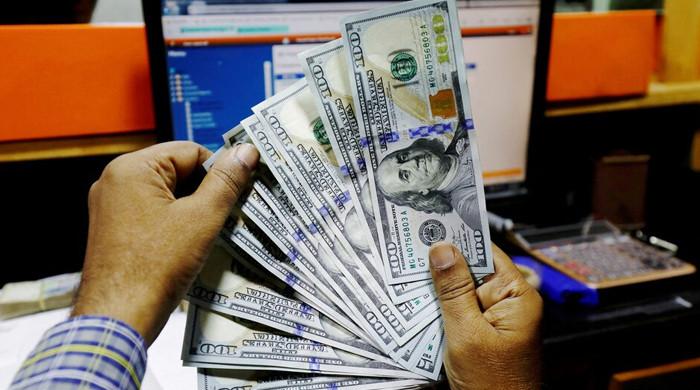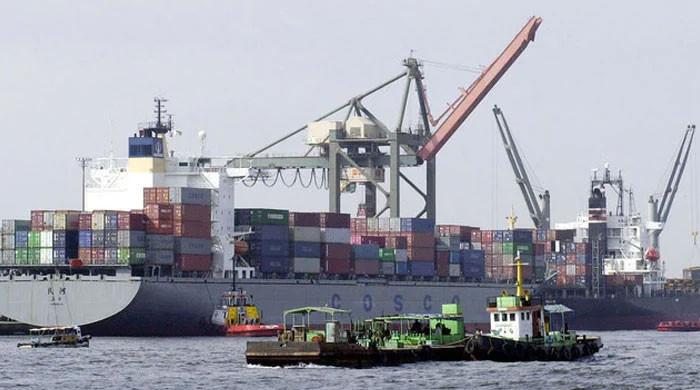External debt payments dent SBP's reserves for third straight week
SBP says its reserves decreased $72 million to $4.31 billion due to external debt payment
May 18, 2023

- SBP says its reserves decreased $72 million.
- Reserves now stand at $4.31 billion, says SBP.
- Reserves can cover less than a month's imports.
State Bank of Pakistan's (SBP) forex reserves fell for the third straight week as the cash-strapped country struggles to secure external financing amid a stalled bailout programme.
In its weekly bulletin, the SBP said its reserves had decreased $72 million to $4.31 billion, as of May 12, due to external debt payment — which will be enough for less than a month's worth of imports.
Net foreign reserves held by commercial banks stand at $5.62 billion, $1.01 billion more than the central bank, bringing the total liquid foreign reserves held by the country to $9.93 billion.
The reserves have been range bound for the last several months as Pakistan faces an acute balance of payments crisis.
The $350 billion economy is in turmoil amid financial woes and the delay in an agreement with the International Monetary Fund (IMF) that would release much-needed funding crucial to avoid the risk of default.
The government has been in talks with the Washington-based lender since end-January to resume the $1.1 billion loan tranche that has been on hold since November, part of a $6.5 billion Extended Fund Facility (EFF) agreed upon in 2019.
A deal with the IMF will also unlock other bilateral and multilateral financing avenues for Pakistan to shore up its foreign exchange reserves.
The ninth review was due in November 2022 but the two sides have not yet reached consensus.
The IMF has been insisting that the government needs to secure "significantly more financing" for a successful bailout review, but the local authorities remain adamant they have already met the requirements.
The South Asian nation is not only facing economic, but political crises as well, which has impacted the economy as the markets remain jittery amid a gloomy situation.











